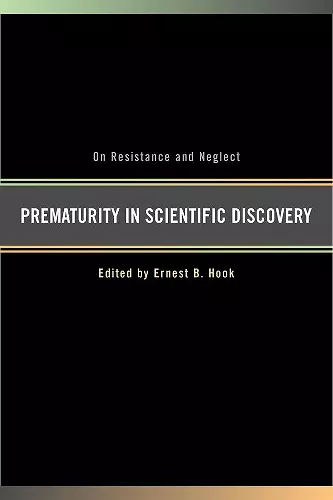Prematurity in Scientific Discovery
On Resistance and Neglect
Format:Hardback
Publisher:University of California Press
Published:20th Sep '02
Should be back in stock very soon

For centuries, observers have noted the many obstacles to intellectual change in science. In a much-discussed paper published in "Scientific American" in 1972, molecular biologist Gunther Stent proposed an explicit criterion for one kind of obstacle to scientific discovery. He denoted a claim or hypothesis as "premature" if its implications cannot be connected to canonical knowledge by a simple series of logical steps. Further, Stent suggested that it was appropriate for the scientific community to ignore such hypotheses so that it would not be overwhelmed by vast numbers of false leads. In this volume, eminent scientists, physicians, historians, social scientists, and philosophers respond to Stent's thesis.
"In preparing this remarkable book, Ernest Hook persuaded an eminent group of scientists, historians, sociologists and philosophers to focus on the problem: why are some discoveries rejected at a particular time but later seen to be valid? The interaction of these experts did not produce agreement on 'prematurity' in science but something more valuable: a collection of fascinating papers, many of them based on new research and analysis, which sometimes forced the author to revise a previously-held opinion. The book should be enthusiastically welcomed by all readers who are interested in how science works." - Stephen G. Brush, co-author of Physics, The Human Adventure: From copernicus to Einstein and Beyond
ISBN: 9780520231061
Dimensions: 229mm x 152mm x 30mm
Weight: 680g
398 pages